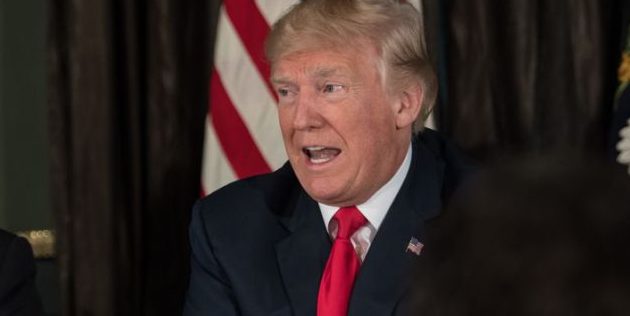President Donald Trump’s policies “marked a new era of human rights regression” in the U. S. and around the world, but helped inspire new activists, Amnesty International said on Thursday.
“Trump’s backward steps on human rights are setting a dangerous precedent for other governments to follow,” the rights group said in an annual report.
The report said Trump and other leaders, including Egyptian President Abdel-Fattah al-Sissi, Philippine President Rodrigo Duterte, Venezuelan President Nicolas Maduro, Russian President Vladimir Putin, and Chinese President Xi Jinping, “are callously undermining the rights of millions.”
“The transparently hateful move by the U.S. government in January to ban entry to people from several Muslim-majority countries set the scene for a year in which leaders took the politics of hate to its most dangerous conclusion,” said Salil Shetty, Amnesty’s secretary-general.
“We saw the ultimate consequence of a society encouraged to hate, scapegoat and fear minorities laid bare in the horrific military campaign of ethnic cleansing against the Rohingya people in Myanmar,” Shetty said.
Shetty accused the international community of a “feeble response” to reports of severe human rights abuses in Myanmar, Iraq, South Sudan, Syria and Yemen.
“Governments are shamelessly turning the clock back on decades of hard-won protections,” he said.
The report said the Trump administration “scored poorly on women’s rights, publicly supported torture, [and] attempted to take healthcare coverage away from millions.”
It also “undermined the media, equivocated on white supremacy, discriminated against transgender individuals, and is considering loosening restrictions on the export of small arms.”
Amnesty said in spite of the setbacks, such “regressive policies” inspired many people to join long-standing struggles.
READ ALSO: Buhari meets IBB, Obasanjo, others as Council of State meeting holds
It saw positive steps such as the lifting of a total abortion ban in Chile, moves towards marriage equality in Taiwan and a “landmark victory” against forced evictions in Abuja, Nigeria.
Margaret Huang, executive director of Amnesty International U.S., said rights defenders worldwide “can look to the people of the United States to stand with them, even where the government has failed.”
The report highlighted the “colossal importance” of free speech for human rights amid “the willingness of prominent leaders to tout ‘fake news’ in order to manipulate public opinion, coupled with attacks on institutions that act as checks on power.”
It said the Chinese Communist Party had “continued to enact new laws that presented serious threats to human rights under the guise of ‘national security’,” and strengthened controls over the internet and religious practice.
“Freedom of expression in [the Chinese territory of] Hong Kong came under attack as the government prosecuted pro-democracy activists,” Amnesty said.
In Turkey, “dissent was ruthlessly suppressed, with journalists, political activists and human rights defenders – including Amnesty’s own staff – among those targeted.”
Amnesty noted that Turkey continued to host one of the world’s largest refugee populations, with more than three million registered Syrian refugees alone, “but risks of forcible return persisted.”
Amnesty said human rights violations continued across the border in Syria, with Syrian government and US-led coalition attacks leading to civilian casualties.
(dpa/NAN)











